Of course, the dramatizations of War and Peace tend to highlight the affective romantic themes which carry along readers, in particular teenage girls. We envision Natasha’s first ball, her dance with Andrei. We see her by his bedside in his final agony as he succumbs to his injuries from the Borodino battle. We tend to skip over and ignore the considerable dose of Tolstoy’s historiographical musings on whether great men like Napoleon or Tsar Alexander I are the decisive force of history or the involuntary agents of the people they think they govern, his philosophical shadow boxing with Schopenhauer over free will versus determinism.
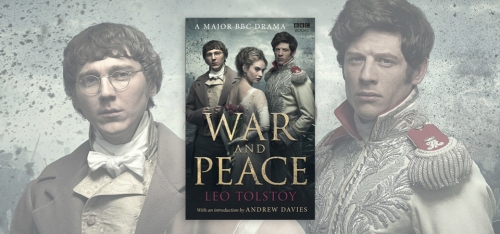
Indeed, some publishers chose to delete the second Epilogue from their editions. However, the briefer passages of historiographical reflections spread through the novel are there to be savored in most all editions. In the appendix to this essay, I offer an extensive citation of one such “aside” so that the reader can appreciate from Tolstoy’s text his method of reasoning, which is at the same time homely and unrelenting. The given selection focuses ultimately on the relationship between kings, generals, ministers and the people. It is as applicable to our understanding of Donald Trump as it was to Tolstoy’s understanding of Napoleon or Alexander I of Russia. The translation from the Russian is mine.
The philosophical asides of Tolstoy in War and Peace serve as the raw input for this essay, because they strongly suggest the relevance of Napoleon’s invasion of Russia in the late spring of 1812 to the psychological and strategic situation we find ourselves in today on the Old Continent in what could well be a prelude to all-out war. To go a step further, I would argue that the Napoleonic invasion of Russia is more relevant today than Cold War 1.0, not to mention WWI and WWII.
To be specific, 1812 as interpreted by Tolstoy raises the following issues:
- The precondition for war is the near universal acceptance of the logic of the coming war by not only those who will be doing the fighting but also by all those who must support the war effort in civilian capacity in production and logistics. That is to say people fight not because Power compels them to do so but because they are persuaded it serves their interests
In 1812, the logic of those enlisted by Napoleon was, on the high-minded side, the spread of the values of the French Revolution to the very fringes of autocratic Asia. On the low side, it was the incalculable riches awaiting the victors. For soldiers and officers that meant whatever could be seized by those lucky enough to occupy Moscow. For the French emperor and his coterie, it meant enforcement of the Continental System that enriched France at the expense of Britain and the other European states.
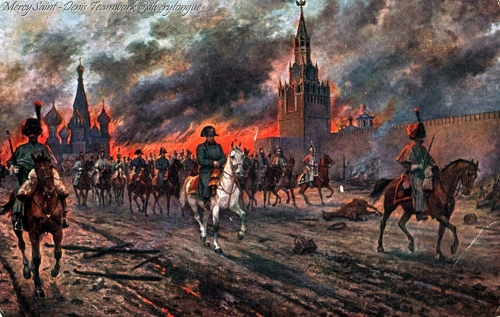
Transposed to our own day, this issue finds its parallel in the informational war the United States and the West more generally have been waging against Russia. The defamation of Putin, the denigration of Russia all have been swallowed whole by the vast majority of our political classes, who today would view with equanimity, perhaps even with enthusiasm any military conflict with Russia that may arise, whatever the immediate cause.
- Napoleon’s invasion of Russia was not a French force acting out purely French ambitions but was described by Tolstoy as “a movement of the peoples of Europe from West to East.” The Grand Armée of 680,000 soldiers which Napoleon led had as its core his Imperial Guard of 20,000, which he never deployed in action against the Russians because of their vital role in keeping him in power. Ordinary French soldiers and officers who were put on the field to fight and die made up less than half of the total forces at Napoleon’s orders. They were a still smaller percentage of those who perished in the campaign. The rest of the army consisted of willing recruits from petty German states along the Rhine, Prussians, Dutch, Italians, Austrians and others, in particular Poles, who deserve special mention below.
Transposed to our own day, the multinational forces of French-led Europe of 1812 translate very nicely into American-led NATO.
- The single biggest contingent of the voluntary forces serving in the Grand Armée poised to invade Russia in 1812 were Poles, who were there for their own geopolitical purposes to restore their homeland to the map of Europe and to prove their value as Europe’s protectors. This is a point which Tolstoy develops at some length not just because of the numbers of Polish troops, which were very significant, at approximately 96,000 but because of the Poles’ likely influence on how the whole campaign by Napoleon was conceived, including the peculiar decision to march not on St Petersburg but on the ancient Russian capital of Moscow, where the Poles sat on the throne exactly two hundred years before during a turbulent period known in Russian as the Time of Troubles.
Tolstoy goes out of his way to highlight the Polish factor in the invasion. This begins with his description of the June day when Napoleon stood on the banks of the Nieman River which marked the western border of the Russian Empire and gave the order to invade.
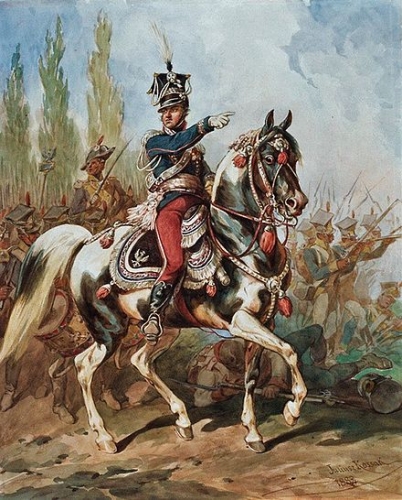 While Napoleon rested on a tree stump and looked over his maps, Tolstoy tells us that a Polish lancer came up to him, shouted Vivat and offered to lead his cavalry troops across the river before the eyes of the Emperor. Napoleon distractedly looked the other way, while the lancer’s men attempted the crossing, during which more than 40 of them drowned. The emperor afterwards made sure that the leader, who did make it across was duly given a medal.
While Napoleon rested on a tree stump and looked over his maps, Tolstoy tells us that a Polish lancer came up to him, shouted Vivat and offered to lead his cavalry troops across the river before the eyes of the Emperor. Napoleon distractedly looked the other way, while the lancer’s men attempted the crossing, during which more than 40 of them drowned. The emperor afterwards made sure that the leader, who did make it across was duly given a medal.
A further tip-off on Tolstoy’s thinking about the role of the Poles in the invasion is his remark on what was going through Napoleon’s mind as he looked across the river to the Russian Cossack detachment on the other side. He tells us that Napoleon believed he was looking at the Asiatic steppes!
While Tolstoy does not attribute this specific extravagant idea to Napoleon’s Polish allies, who otherwise are close by his side, we note that at this time Napoleon has already donned a Polish officer’s uniform. And in a day or so he will be taking up residence in the home of a Polish nobleman in Vilno (today’s Vilnius, capital of Lithuania, then still a Polish province of Russia) where Alexander I had had his field headquarters just weeks before.
Transposing all of this to present-day, we find that once again Polish ruling elites are hard at work prompting, goading the European Union and the United States to use Poland as the shield against Russia. The notion of a Fort Trump falls perfectly in line with the sycophancy of their forebears to Bonaparte.
Finally, there are two observations about the invasion of 1812 which Tolstoy repeatedly tells us in his asides. They both merit the full attention of today’s leadership in Washington and Brussels.
- Watch your supply lines!
It is today widely believed in the general public here in Belgium, in France that Napoleon was defeated in Russia not by superior military skills of his enemy but by “General Winter.” Even a cursory reading of Tolstoy shows that this is utter nonsense. The French retreat began after only 5 weeks of the occupation of Moscow in mid-September, when blasts of winter cold were still months away. But from the moment the withdrawal began the Grande Armée was melting away due to illness and desertions related to lack of provisions. The overall breakdown in discipline following on the marauding and looting during the occupation of Moscow compounded this disaster.
Provisions were lacking for a number of reasons, including very poor decisions by Napoleon on the route of return, using the already wasted Minsk highway. But the single most important reason was that Napoleon’s forces were overstretched. And, of course, that was no accident. Insofar as the Russian commander Suvorov had a consistent strategy it was precisely to draw the French far into the country till their ability to sustain war was vitiated by the scorched earth policy of the Russian population, from peasants up to nobility.
Transposed to today’s strategic confrontation with Russia, the notion of NATO defending the Baltics or pursuing a war at Russia’s borders generally is as foolish as what Napoleon undertook. The United States is simply too far away to respond effectively to Russia fighting on its home soil, with or without the forward stationing of US supplies and rotating NATO forces in the East.
- The outcome of battles and of war itself is not foreseeable.
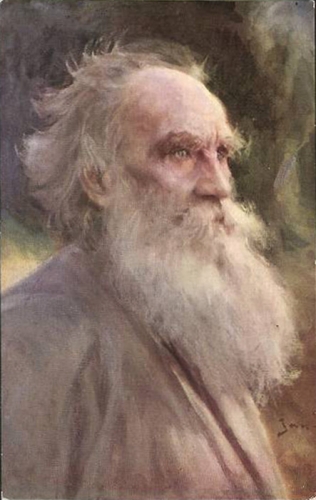 In his narrative of the battles between the warring forces during the 1812 campaign, Tolstoy tells us repeatedly that the relative strength in men and materiel of the respective sides was only one factor to success, however important. That advantage could be overturned by greater determination and morale of the nominally weaker side. It could be overturned by the arbitrary decision of a noncommissioned officer on the front line to shout ‘hooray’ and lead his troops in attack or it could be enhanced by the arbitrary decision of such an officer to shout “we are lost” and pull back his forces in a rout. In no maneuver is morale more important than in retreat, which was the strategic plan of the Russian leadership.
In his narrative of the battles between the warring forces during the 1812 campaign, Tolstoy tells us repeatedly that the relative strength in men and materiel of the respective sides was only one factor to success, however important. That advantage could be overturned by greater determination and morale of the nominally weaker side. It could be overturned by the arbitrary decision of a noncommissioned officer on the front line to shout ‘hooray’ and lead his troops in attack or it could be enhanced by the arbitrary decision of such an officer to shout “we are lost” and pull back his forces in a rout. In no maneuver is morale more important than in retreat, which was the strategic plan of the Russian leadership.
Readiness for self-sacrifice to save the fatherland was the outstanding feature of the Russians in 1812, just as later proved itself in WWII. The battle of Borodino was, in purely military terms, a loss for the Russian side which left the battlefield with casualties and deaths more damaging than Napoleon’s Grand Armée suffered. However, it was a moral victory, because unlike all the European armies Napoleon had fought till then, only the Russians absorbed horrific losses from artillery bombardment and nonetheless stood their ground, leaving in an orderly retreat in the end. The way was now open for the French to take Moscow, but the Russian Army was not broken and would be there to enforce the flight of Napoleon’s force after it lost its strength to indiscipline and desertion during its stay in Moscow.
Transposing this message to our present day, we have reason to take seriously the manifest will of today’s Russians to stand their ground at whatever cost. More generally, we should pay close attention to a crusader for moderation who has the military experience to justify our respect. In his several books, Andrew Bacevich has argued repeatedly, like Tolstoy, that there are no certainties in war and that wars of choice must therefore be avoided.
Appendix
War and Peace. First pages of Volume Three. Part One Tolstoy’s philosophical thoughts on historical causality, on the role of Great Men in history and on day one of the invasion.
“From the end of 1811 there began a strengthened arming and concentration of forces of Western Europe and in 1812 these forces – millions of people (taking into account those who transported and fed the army) moved from West to East, to the borders of Russia to which precisely as in 1811 the forces of Russia were drawn. On 12 June the forces of Western Europe crossed the borders of Russia and war began, i.e.an event occurred which went against human reason and against all of human nature. Millions of people did to one another such countless evil deeds, deceptions, betrayals, theft, counterfeit and release of fake bank notes, stealing, arson and murders which for whole centuries you do not find in the chronicles of all courts of the world and for which in this period of time the people who perpetrated them did not view them as crimes.
“What produced this unusual event? What were its causes? Historians with naïve certainty say that the causes of this event were the offense given to the Duke of Oldenburg, the failure to observe the Continental system, the thirst for power of Napoleon, the firmness of Alexander, the errors of diplomats, etc.
“Consequently, you needed only that Metternich, Rumyantsev or Talleyrand, between the going forth and the rout, had to try harder and write some paper more skillfully or for Napoleon to write to Alexander: “Sir, my brother, I agree to accord the duchy to the Duke of Oldenburg,” and there would have been no war.
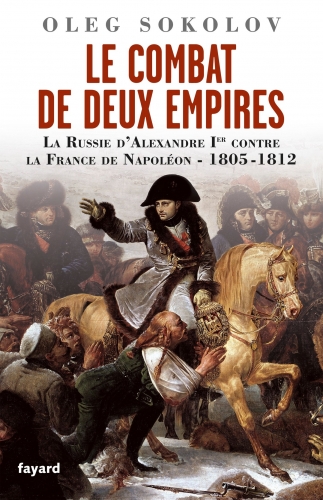 “It is understandable that it seemed to be the case to contemporaries. It is understandable that to Napoleon it appeared that the cause of the war was the intrigues of England (as he said on the island of St Helena); it is understandable that to members of the English House of Commons it appeared that the cause of the war was the thirst for power of Napoleon; that to the prince of Oldenburg it appeared that the cause of war was the violence committed against himself; that to merchants it appeared that the cause of war was the Continental system, which ruined Europe; that to the old soldiers and generals it seemed that the main cause was the need to use them in the affair; to the legitimists of that time it was necessary to restore the proper principles, and to the diplomats of that time, everything resulted from the fact that the alliance of Russia with Austria in 1809 was not sufficiently skillfully concealed from Napoleon and the memorandum No. 178 was clumsily written. It is understandable that these and still countless more reasons, whose number depends on countless different points of view, appeared to contemporaries; but for us – the descendants who see the enormity of the event and are looking into its simple and terrible sense, – these causes are insufficient. For us it is not clear that millions of people- Christians – killed and tortured one another because Napoleon was thirsty for power, Alexander was firm, the policy of England was crafty and the Duke of Oldenburg was offended. We cannot understand the connection between these circumstances and the fact of murder and violence; why in consequence of the fact that the duke was offended thousands of people from one end of Europe killed and destroyed people of Smolensk and Moscow provinces and were killed by them.
“It is understandable that it seemed to be the case to contemporaries. It is understandable that to Napoleon it appeared that the cause of the war was the intrigues of England (as he said on the island of St Helena); it is understandable that to members of the English House of Commons it appeared that the cause of the war was the thirst for power of Napoleon; that to the prince of Oldenburg it appeared that the cause of war was the violence committed against himself; that to merchants it appeared that the cause of war was the Continental system, which ruined Europe; that to the old soldiers and generals it seemed that the main cause was the need to use them in the affair; to the legitimists of that time it was necessary to restore the proper principles, and to the diplomats of that time, everything resulted from the fact that the alliance of Russia with Austria in 1809 was not sufficiently skillfully concealed from Napoleon and the memorandum No. 178 was clumsily written. It is understandable that these and still countless more reasons, whose number depends on countless different points of view, appeared to contemporaries; but for us – the descendants who see the enormity of the event and are looking into its simple and terrible sense, – these causes are insufficient. For us it is not clear that millions of people- Christians – killed and tortured one another because Napoleon was thirsty for power, Alexander was firm, the policy of England was crafty and the Duke of Oldenburg was offended. We cannot understand the connection between these circumstances and the fact of murder and violence; why in consequence of the fact that the duke was offended thousands of people from one end of Europe killed and destroyed people of Smolensk and Moscow provinces and were killed by them.
For us, the descendants – not historians, not carried away by the process of searching and therefore with undimmed common sense contemplating the event, the causes seem to be countless in number. The more we get into the search for causes, the more they are revealed to us and every cause taken separately or a whole array of causes seems to us to be equally just by themselves, and equally false in their insignificance by comparison with the enormity of the event and equally false due to their inability (without the participation of all the other coincidental causes) to create the event which took place. Such a cause as the refusal of Napoleon to move his troops back beyond the Vistula and to give back the duchy of Oldenburg seems to us to rank with the refusal of the first French corporal to enroll for a second tour of duty: for if he did not want to go into the service and did not want a second tour and a third tour and the thousandth corporal and soldier there would be so many fewer people in the army of Napoleon and the war could not have been.
“If Napoleon had not been insulted by the demand that he move back beyond the Vistula and had not ordered his troops to advance, there would not have been a war; but if all the sergeants had not wanted to go for a second tour of duty war also would not have been possible. Also there could not have been a war if there were no intrigues by England and if there was no prince of Oldenburg and the feelings of insult in Alexander, and if there were no autocratic power in Russia, and if there had been no French revolution and the dictatorships and empire which followed from it, and everything that produced the French revolution, and so forth. Without one of these causes nothing could have been. And so these causes, all of them, billions of causes, came together for what happened to occur. And consequently nothing was the exclusive cause of the event, but the event had to happen only because it had to happen. Millions of people had to abjure their human feelings and their reason, going to the East from the West and killing people like themselves, just as several centuries before that crowds of people went from the East to the West and killed people like themselves.
“The actions of Napoleon and Alexander, from whose words it would seem the event took place or would not take place – were also no more arbitrary than the action of each soldier who went on the campaign by drawing lots or by recruitment. It could not be otherwise because for the will of Napoleon and Alexander (people upon whom, it seemed, the event depended) to be executed it was necessary that there be a coincidence of innumerable circumstances without one of which the event could not be carried through. It was necessary that millions of people in the hands of which there was real power, the soldiers who shot, carried the provisions and cannon, they had to agree to carry out the will of the singular individuals and weak people and they were brought to this by an innumerable number of complex and diverse reasons.
“Fatalism in history is inevitable to explain unreasonable phenomena (i.e., those whose reasonableness we cannot understand). The more we try to reasonably explain these phenomena in history, the more they become unreasonable and incomprehensible for us.
“Every person lives for himself, uses his freedom to achieve his own personal objectives and feels by his whole being that he can now do or not do some action; but as soon as he does it, this action completed at a certain moment in time becomes irreversible and becomes the property of history, in which it has not a free but a predetermined significance.
“There are two sides to life in each man: his personal life, which is freer the more abstract are his interests, and the elemental life where man inevitably performs what the laws prescribe for him.
“Man consciously lives for himself, but serves as an unconscious tool for the achievement of historical, general human goals. The act completed is irreversible, and his action, coinciding in time with millions of actions of other people, receives historic significance. The higher a man stands on the social ladder, the more he is bound up with big people, the more power he has over other people, the more obvious is the predetermination and inevitability of his every action.”
“The tsar’s heart in in God’s hands.”
“The tsar is the slave of history”
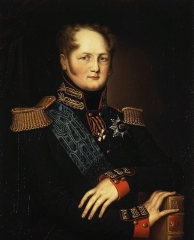 “Napoleon, despite the fact that more than ever before in 1812 it seemed to him that it depended on him whether to spill or not to spill the blood of his peoples (as Alexander wrote to him in his last letter),never more than now did he submit to those inevitable laws which forced him (acting in relation to himself, as it seemed to him, by his arbitrary choice) to do for the common cause, for history, what had to be done.
“Napoleon, despite the fact that more than ever before in 1812 it seemed to him that it depended on him whether to spill or not to spill the blood of his peoples (as Alexander wrote to him in his last letter),never more than now did he submit to those inevitable laws which forced him (acting in relation to himself, as it seemed to him, by his arbitrary choice) to do for the common cause, for history, what had to be done.
“The peoples of the West move to the East to kill one another. And by the law of coincidence of causes it happened on its own and coincided with this event that there were thousands of small causes for this movement and for the war: rebuke over nonobservance of the Continental system, and the duke of Oldenburg, and the movement of troops into Prussia undertaken (as it seemed to Napoleon) only to achieve an armed peace, and the love and habits of the French emperor for war coinciding with the predisposition of his people, the attraction to grandeur of preparations, and the expenses on preparations, and the need to acquire advantages which would justify these expenses, and the ……millions and millions of other causes which underlay the event and coincided with it.
“When the apple falls, why does it fall? From the fact that it is drawn to the earth, from the fact that the stem dries out, from the fact that it is dried by the sun; that it grows heavy, that the wind shakes it, from the fact that a boy standing underneath it wants to eat it?
“Nothing is the cause. These are just the coincidence of conditions under which any live, organic and elemental event occurs. And the botanist who finds that the apple falls because its cells decompose, etc. will be just as correct and just as incorrect as the child standing underneath who says that the apple fell because he wanted to eat it and prayed for this. Just as right and wrong will be the person who says that Napoleon went to Moscow because he wanted this and he was ruined because Alexander wanted his destruction: both right and wrong will be the person who says that an excavated hill weighing a million poods fell because the last worker struck it the last time with a pick. In historical events so called great men are labels which give a name to the event, which like labels have least of all any connection with the event.
“Every action by them which seems to them to be arbitrary and for themselves in historical sense is not arbitrary but is bound up with the whole course of history and has been determined eternally.”
29 May 1812 [Old Style] Napoleon left Dresden where he spent three weeks surrounded by his court.
“Although diplomats still firmly believed in the possibility of peace and worked hard with this goal, despite the fact that the emperor Napoleon himself wrote a letter to emperor Alexander calling him Monsieur mon frère and sincerely assuring him that he did not want war and always would love and respect him – he went to the army and gave at every station new orders aimed at speeding up the movement of the army from west to east. He traveled in a carriage pulled by six horses, surrounded by pages, adjutants and a convoy on the road to Posen, Torn, Danzig and Koenigsberg. In each of these cities thousands of people met him with thrill and delight.
“The Army moved from West to East and exchange teams of horses bore him there. On 10 June [Old Style] he reached the army and spent the night in the Wilkovis forest in an apartment prepared for him in the estate of a Polish count.
“The next day Napoleon caught up with the army and in a carriage approached the Nieman so as to inspect the place of crossing. He changed his dress into a Polish uniform and went out onto the shore.
“Seeing on the other side Cossacks and the Steppes spreading out, in the middle of which was Moscow, the Holy City, the capital of a state like the Scythian state, where Alexander of Macedon had gone. Napoleon, unexpectedly for everyone and against both strategic and diplomatic considerations, ordered the attack and on the next day his troops began to cross the Nieman.”



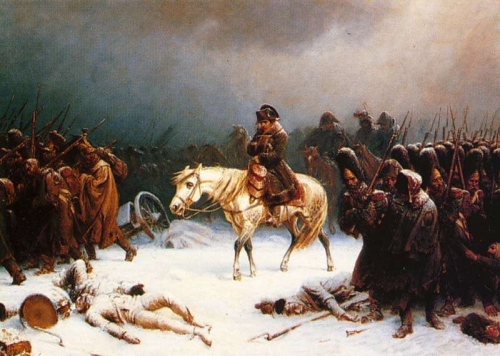

 del.icio.us
del.icio.us
 Digg
Digg